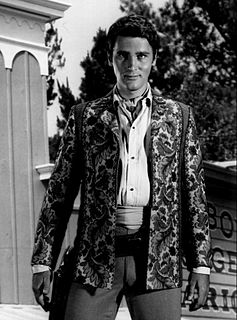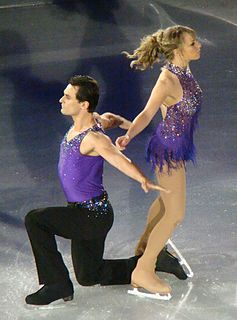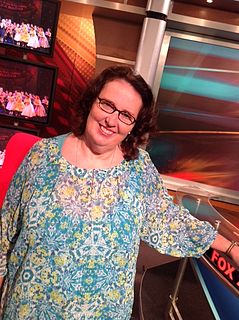A Quote by Augusten Burroughs
Each time my mother went psychotic, I hoped it would be the last time. Afterward she would tell me, 'I think that was the final episode. I think I had a breakthrough.' And I would believe-for a few months-that it was true. That she was back to stay. Maybe it was like having a rock star mother who was always on the road. Were there Benatar children? Did they sit around and wonder if their mom's Hell is for Children tour was going to be her last tour?
Related Quotes
If my mom came here today, she'd probably join this red-hat brigade. My mother got my sense of humor, even when I was a kid. I would just do things that tickled my fancy in the moment, and she would ask me who I was entertaining. I'd say, 'Well, me.' And she would tell me that nobody knew that and they thought I was psychotic. Well, I don't ever want people to think I'm psychotic, but I can't help myself from doing these things.
Audrey, it seems to me, never strove or hoped to leave a lasting legacy with her films - she was far too modest for that. But what I think she would have wanted, had she been given more time, would have been to continue her work for children because she knew that is a task with so much to be accomplished.
One thing I did have under my belt was, my mother lost her mother when she was 11. She mourned her mother her whole life and made my grandmother seem present even though I never met her. I couldn't imagine how my mom could go on but she did, she took care of us, she worked two jobs and had four children. She was such a good example of how to conduct oneself in a time of grief. When I lost my husband, I tried to model myself as much as I could on her.
It was like they waited to tell each other things that had never been told before. What she had to say was terrible and afraid. But what he would tell her was so true that it would make everything all right. Maybe it was a thing that could not be spoken with words or writing. Maybe he would have to let her understand this in a different way. That was the feeling she had with him.
My mother had heard the story of Hannah and Samuel, so she prayed that if God would give her a son, she would give that son to God. That was a perfectly appropriate thing for her to do, but as I observe, she did not have to tell me she had made such a promise. In particular, she did not have to tell me when I was six.
But she wouldn't. I knew that already. My mother and I had an understanding: we worked together to be as much in control of our shared world as possible. I was suposed to be her other half, carrying my share of the weight. In the last few weeks, I'd tried to shed it, and doing so sent everything off kilter. So of course she would pull me tighter, keeping me in my place, because doing so meant she would always be sure, somehow, of her own.
I was amazed by this person who, even though she had everything, would go to feed the homeless and visit sick children and Aids victims. It was like a fairy tale. Who was she really? Why did she do this? She was trying to find love. I wanted the world to see her kindness, her humility: I think she realised that would be her way.
It's useful to know how much society's holding you back. My mother would talk about how she was told by the head of her art school that she was the best painter, but that she wouldn't get the biggest prize because she would waste her talent by having children. I think we have to get honest with girls about how they can expect the world to block them, and we have to prepare girls, and ourselves, to break through those blocks.
They were partners. She would always make impulsive decisions and he would make slow, reasoned ones. He would always be a little terrified that she would look at him with the scorn he saw in his mother's eyes. And she would always be a little terrified that he would look at her and not love her enough. In short, they were made for each other.
There was a warmth of fury in his last phrases. He meant she loved him more than he her. Perhaps he could not love her. Perhaps she had not in herself that which he wanted. It was the deepest motive of her soul, this self-mistrust. It was so deep she dared neither realise nor acknowledge. Perhaps she was deficient. Like an infinitely subtle shame, it kept her always back. If it were so, she would do without him. She would never let herself want him. She would merely see.






































